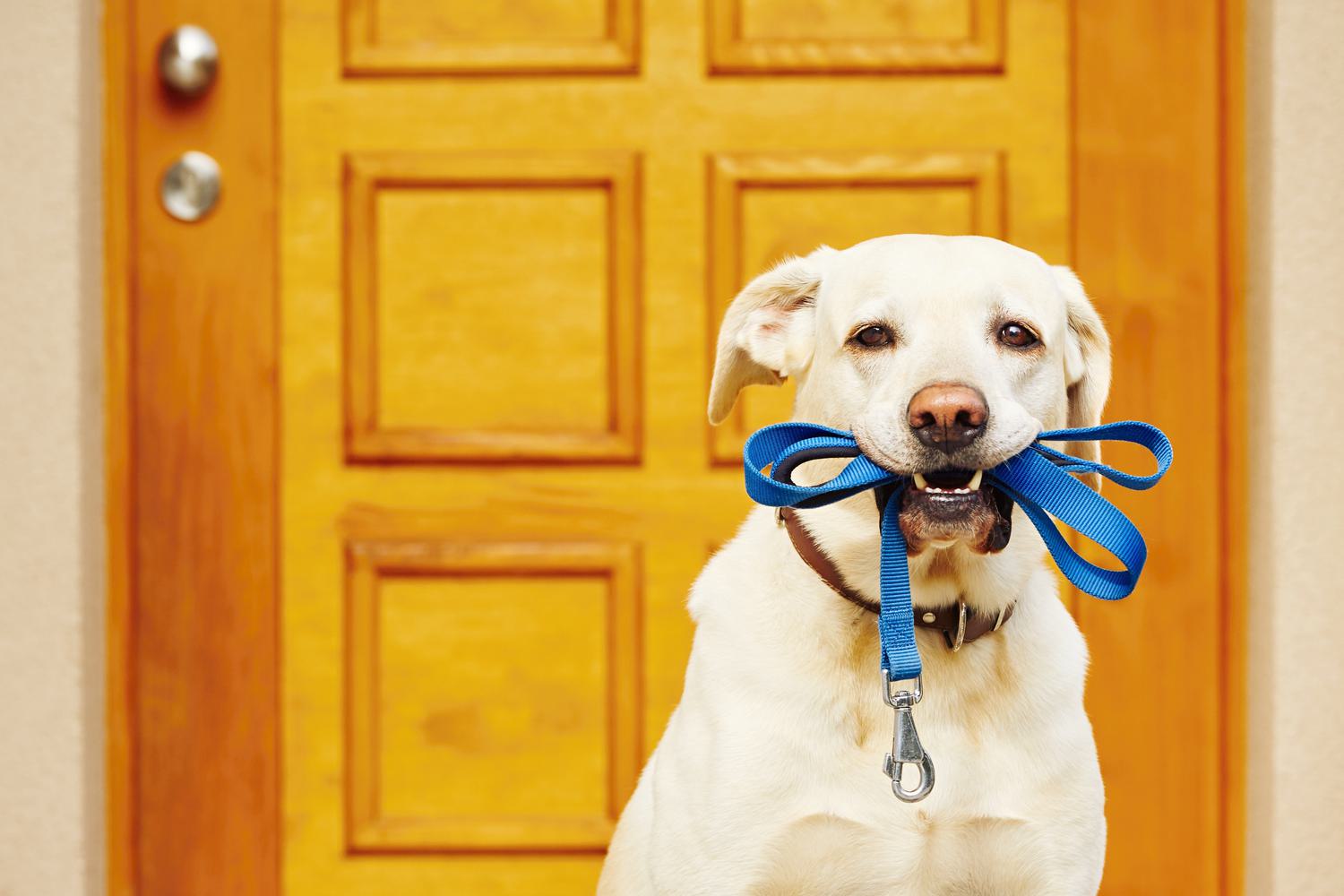Your dog's welfare is of utmost importance, however when you become a pet owner you are also agreeing to take responsibility for protecting the community and controlling your dog.
The DOA and the RCIPS want to encourage responsible animal ownership and are available to support all dog owners in meeting their responsibilities. However, they are also responsible for investigating dog attacks and incidents of neglect, should they occur.
Below provides an outline of what is expected of dog owners in regard to their dog's welfare as well as community protection.
For more information on animal ownership and welfare, download the Responsible Dog Ownership Brochure. The full Animals Act (2015 revision) Gazette can be found here.
On This Page
Responsibility for Controlling Your Dog
According to Cayman's Animals Act (section 26), every person keeping a dog shall ensure that such dog, while on any road or other public place - including the beaches - is on a lead (also known as a leash) and is wearing a collar with an identification tag bearing a license number attached thereto.
Failure to keep a dog on a lead in a public place is an offense and liable, on summary conviction, to a fine of CI$500 and three months in prison.
A dog should only be off of a lead if they are confined to the owner's property - either by fence, suitable tether or suitable-sized kennel and secure enclosure. If you keep your dog on a tether ensure that enough space is provided allowing them to move and lay freely (see table below for a guide on space allocation). Your dog should also have access to food, shelter, water and exercise.
If a dog is dangerously out of control in a public place or is responsible for injuring any person or domestic animal, you will be liable for the cost of the damages or injuries, a fine of CI$4,000 and six months imprisonment.People in charge of a dog in a public place are also responsible for cleaning up after their animal. Failure to remove the faeces is an offence and you will be liable to a CI$2,000 fine.
| Size of Dog | Sleeping Area | Run |
|---|---|---|
| Small (under 15 pounds) | 2ft x 2ft | 2.5ft x 5ft (12.5sq ft) |
| Medium (16-44 pounds) | 2.5ft x 3ft | 4ft x 10ft (40sq ft) |
| Large (45-88 pounds) | 3ft x 5ft | 5ft x 15ft ( 75sq ft) |
Responsibility for Protecting the Community
If your dog is dangerously out of control in a public place or is responsible for injuring any person or domestic animal, you will be liable for the cost of damages and/or injuries. The owner of the dog and, if different, the person in charge of the dog at the time of the incident, commits an offense.
Such damages shall be recoverable in any court of competent jurisdiction and liable on summary conviction to imprisonment for six months and to a fine of CI$4,000.
What to do if you are attacked by a dog:
- Call the police or 911 and make a formal complaint. Provide a statement to the police stating the date, time, location, description of animal, description of injury, with pictures if possible. Any hospital or medical records attesting to the injury are also useful.
- If the owner is known, try to calmly and rationally establish dialogue about your injury and potential cost of compensation. If you cannot civilly come to a decision about liability, then a police investigation will be launched into the matter and both parties will be required to appear in court.
- If you were bitten, see a doctor immediately for treatment. Dog bites can become easily infected.
What to do if you are the dog owner:
- You are responsible for any costs related to your animal causing injury to any person outside of your property, as well as any damage to any property, not being your own property.
- Share your contact information with the victim of your dog attack. Handling the situation outside of court will be a faster process.
- Co-operate with the police and DOA officers and provide whatever information they may ask of you.
- Take steps to ensure that this issue does not repeat itself. Properly tether your dog or place them in a suitable sized kennel and secure enclosure.
Responsibility for Licensing
By law, a person cannot keep a dog over the age of four months unless they hold a dog licence specific to that dog - no matter the size or breed.
When in a public place, a collar (and lead) must be worn with an identification tag bearing the license number. If a constable finds a dog in a public place and has reason to believe it is a stray, they may seize and detain the dog.
If the dog is not wearing a tag and the owner cannot be traced within seven days, the DOA will either put the dog up for adoption or sadly put it to sleep. If the owner can be traced, notice of seizure will be given to the said owner, the dog will then be restored to the owner, and the owner must pay all expenses incurred by the dogs detention.
Dog licenses can be obtained from the Department of Agriculture (DOA) at no cost. Visit them at 181 Lottery Road, Lower Valley, and fill out a simple application form that asks for your name and contact details and your dog's name and a short description of the dog. You can also call them on tel: (345) 947 3090.
If one of the DOA’s Animal Welfare Officers is in your area, they can pop over to your house, take your information and give you the dog tag there and then. This ensures that if your dog is lost or impounded you will be contacted and reunited.
The DOA also encourages dog owners to get their dog micro-chipped.
Responsiblity for Your Dog's Welfare
The DOA wants to inform all dog owners of the five freedoms which should be followed to ensure the health and welfare of your dog.
- Freedom from Hunger and Thirst: By providing ready access to fresh water and a diet to maintain full health and vigour.
- Freedom from Discomfort: By providing an appropriate environment including shelter and a comfortable resting area.
- Freedom from Pain, Injury and Disease: By prevention or rapid diagnosis and treatment.
- Freedom to Express Normal Behaviour: By providing sufficient space, proper facilities and companionship of animals of its own kind (or that of its handler).
- Freedom from Fear and Distress: By ensuring conditions and treatment which avoid mental suffering.
For more information on your responsibilities as a dog owner, contact the Department of Agriculture.
To report cases of stray dogs you can call the DOA on (345) 947 3090 or to report possible animal welfare issues, email: reportanimalcruelty@gov.ky or visit www.doa.gov.ky and click the link 'Report Animal Cruelty'.





